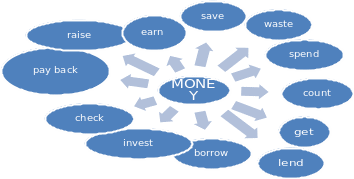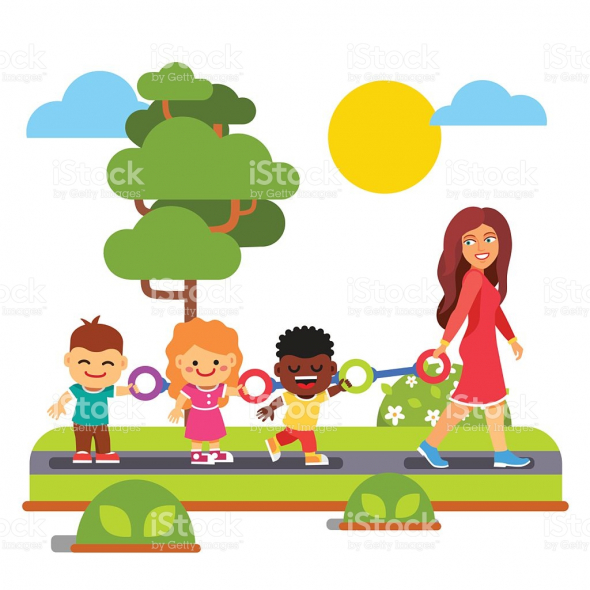Вводная часть:
- What is the main part of our life? (учащиеся предлагают разные варианты ответов: семья, образование и т.п). I suggest you making up a puzzle and guess the topic of our class.
- So, the topic is “Money in our life” (Слайд 1)
- There is a famous proverb “Money talks” (С деньгами легче добиться всего».
- Can you translate it? (варианты учащихся)
- This motto will help us in achieving the goal during the final leg of our journey in Great Britain.
- Today we are in London. At the end of each trip you buy souvenirs in order to remember about amazing moments of your trip.
- What things can you buy to give pleasure to your relatives or friends in this country? (варианты учащихся): magnets, figures of Big Ben, Tower bridge, cards, tea, flags ….
- To get these gift items you should have some money. You have a chance for earning money doing different tasks and use your initial capital: save or pocket money.
- To continue our work you will hear three texts about attractions in Britain and divide into groups of 3.
- Your task is to find out “What is the text about?”
- Take these places if your text is about……(учащиеся занимают места в соответствии с услышанной информацией в тексте).
- What is the currency in the UK? – Pounds.
- Where can we exchange cash in this city? Ответы учащихся: at supermarkets, at airports, in banks, at stations. (Слайд 2 )
- What is the most comfortable place for exchange? (An airport, a supermarket)
- And what is the safest? (The national bank). You shouldn’t trust doubtful organizations and always deal with legal banks. (Слайд 3)
- Take your initial capital. Furthermore, you will get some money for each task. Let’s start!
(Учащимся раздаются банкноты). За последующие задания так же раздаются банкноты.
Работа с лексикой:
Task №1.
- Which way can you use to pay for the souvenirs? Guess the rebuses and name the words, please. Учащиеся по очереди отгадывают ребусы, каждой команде достается по 2 ответа. После каждого задания - денежная банкнота. (Слайд 4) (Coin Banknote Cash Credit Cheque Barter)
Task №2.
- Are you always turn up trumps? (Вам всегда везет)? Let’s play for luck! Scroll the rell(барабан), read the definition and guess the word. По два человека от группы. После каждого задания - денежная банкнота.
Task №3.
- It is necessary to know the operations to manage money skillfully. It can help you to make a currency deal, do shopping or invest money in business. Let's make a map of the verbs that assist(помогать) us do this. (Для того, чтобы умело управлять деньгами необходимо знать операции, которые вы можете совершить для оформления определенной сделки, покупки, инвестиции. Давайте составим карту тех глаголов, который помогают нам это сделать).
- You have a minute to remember these words and then one person of your group should write down them on the blackboard. Your answers should not be repeated.
Учащимся дается 1 мин подумать, записать список глаголов на листке, заранее раздать детям, далее 1 участник из группы записывает по 3 слова и составляют mind map. 
Работа с текстом
Task №4.
- During our trip we met Mary. She told us the story of her capital storage. Your task is to read the text and identify the positive and negative points. Some of the verbs are unscramble. You should guess them. (Во время нашего путешествия мы повстречались с Mary. Она рассказала нам историю накопления своего капитала. Ваша задача прочитать текст и определить положительные и отрицательные моменты).
Вопросы: (Можно раздать вопросы на листках, каждая группа читает вопрос и ответ)
- What other source of income you can find in the text? (inheritance, accidental object) Какой источник дохода, который мы не упомянули ранее встречается в тексте? (наследство, случайная находка)
- Was it the right decision to keep money that Mary found at the cashpoint machine? Правильно ли поступила Мэри оставив себе деньги, найденные у банкомата?
- Чего не стоило делать Полу, чтобы не потерять свои накопления?
- What is Mary and Paul's source of income? (Какой источник дохода у Мери и Пола?)
Mary works in a shop and arsne (earns) 600 pounds a month. Her brother Paul is a businessman and etgs (gets) 300 000 pounds a month. Mary vesas (saves) nearly all of her salary and only npdses (spends) a little on food, but Paul aswste (wastes) all his money on gambling(азартная игра). They inherited(получить наследство) 100,000 pounds each from their grandfather 14 years ago and Mary stedeinv (invested) her in British Petroleum. Paul lost all his money at a casino. He often oorbrws (borrows) money from Mary, but never pays her back so now he owes her a fortune(должен ей целое состояние). Mary is really lucky. One day she found much money on the ground next to a cashpoint machine, when she was withdrawing some money(снимала немного денег). She invited Paul to her house to celebrate, but when he was there, Mary saw him stealing money from her wallet. Mary decided never to endl (lend) Paul money again!
Работа с диалогами. Заключительное задание.
Now it’s time to go shopping and buy some souvenirs for your relatives and friends. Each group has its own dialogue. You should act out it. You have 3 minutes for prepearing.
Task №5.
Dialogue 1
Student: Good morning. I am looking for a souvenir for my mum.
Shop assistant: Of course. What does your mum like?
Student: My mum likes collecting magnets with pictures of landmarks of different countries. Unfortunately, she hasn’t got the one from GB.
Shop assistant: Oh! We’ve got a great collection of magnets! What about that one?
Student: It’s perfect! How much does it cost?
Shop assistant: That’s 15 pounds.
Student: Ok, I’ll take it.
Cashier: Good afternoon.
Dialogue 2
Shop assistant: Good afternoon. What can I do for you?
Student: Good afternoon. I’d like to buy a souvenir for my best friend July from Russia.
Shop assistant: Of course. What do you have in mind?
Student: I am looking for a T-shirt. She has got a great amount of them.
Shop assistant: The T-shirts are over here. Any particular colour?
Student: A white one, please. How much is it?
Shop assistant: That’s 15 pounds.
Student: Thank you. And I will take a UK size 10.
Shop assistant: That’s fine. Let’s go to the checkout.
Cashier: Good afternoon. Can you pay in cash?
Student: Oh, I’ve got only a credit card. Can I pay it?
Cashier: Yes, sure. Here is your T-shirt. Have a nice day.
Student: Goodbye.
Dialogue 3
Shop assistant: Good day. How can I help you?
Student: Good afternoon. I’d like to buy a souvenir for my colleague from Russia.
Shop assistant: Of course. Are you looking for something special?
Student: She likes drinking tea at lunch. I think it will be the best present for her. And, of course, a mug with a national emblem.
Shop assistant: What about that one?

























